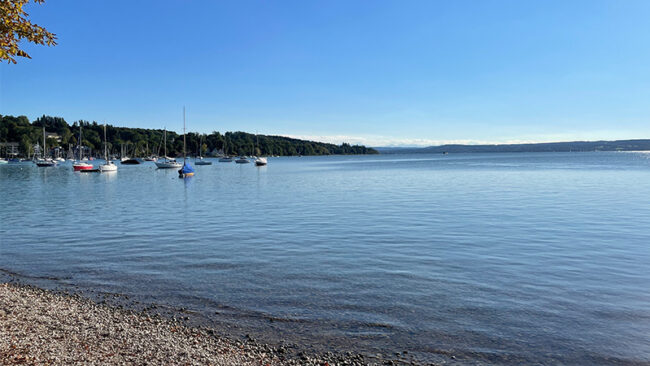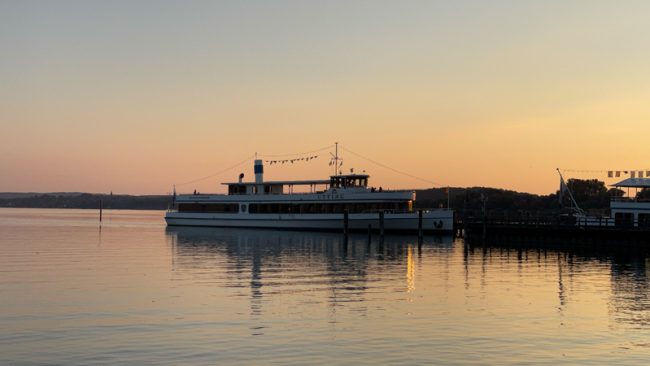Ann-Katrin studied Business Innovation and Sustainability Management. She is part of the DFGE project team supporting companies to reach their sustainability goals. In her spare time she enjoys doing sports and travelling with her camper van.
Doppelte Wesentlichkeit: Der erste Schritt unter den ESRS – Warum Unternehmen tiefer gehen müssen Die doppelte Wesentlichkeit steht aktuell für viele Unternehmen im Fokus. Diese Analyse dient nicht nur dazu, die berichtspflichtigen Themen zu identifizieren, sondern kann auch als erste Risiko- und Chancenanalyse angesehen werden. Unter den European Sustainability Reporting Standards (ESRS) nimmt diese Analyse…
Background The European Union (EU) has emerged as one of the global leader in climate policy, driven by the urgency of addressing climate change and transitioning towards a sustainable future. In the context of climate change, the Corporate Sustainability Reporting Directive (CSRD) represents one key element in the EU’s regulatory approach to integrating climate-related disclosures into…
Die doppelte Wesentlichkeitsanalyse – oder auch Double Materiality genannt – ist der erste verpflichtende Schritt zur Erfüllung der Anforderungen an die CSRD. Allgemein bezieht sich die doppelte Wesentlichkeitsanalyse auf die Überlegung, welche Aspekte für ein Unternehmen sowohl aus finanzieller (Auswirkungen von Nachhaltigkeitsthemen auf die finanzielle Performance eines Unternehmens) als auch aus gesellschaftlicher Perspektive (Auswirkungen durch…
Von Sebastian Rhein & Elisabeth Voigt Anfang 2022 beschlossen die UN-Mitgliedstaaten die weltweite Verschmutzung der Ökosysteme durch Plastik zu stoppen und ein globales Plastikabkommen auszuarbeiten, welches das Plastikproblem entlang des gesamten Lebenszyklus, von der Produktion bis zum Lebensende, abmildern soll. Plastikverschmutzung gilt als eines der größten und herausforderndsten Umweltprobleme unserer Zeit. Besonders Einwegartikel aus Plastik,…
The EcoVadis Supply Chain Assessment EcoVadis is a supply chain assessment which helps companies to understand and quantify sustainability risks within their supply chain. Unlike individual questionnaires or very specific ones like CDP, EcoVadis offers a standardized approach which is able to compare the performance of companies with entirely different profiles on a rating scale…
1. Hintergrund & Ziel Die Verschmutzung von Böden, Luft und Wasser gehören zu den größten Umweltherausforderungen unserer Zeit. Insbesondere Unternehmen tragen zur Abmilderung und Verhinderung von Verschmutzung eine besondere Verantwortung. Daher ist es nicht verwunderlich, dass das Thema Pollution innerhalb der CSRD (Corporate Sustainability Reporting Directive) einen eigenständigen themenspezifischen Standard darstellt (ESRS E2). Der Standard…
Hintergrund Einwegplastikverpackungen gelten als eine der Hauptursachen der globalen Umweltverschmutzung durch Kunststoffe. Zwar bieten diese Verpackungen große Vorteile, wie etwa Hygiene und den Schutz von Produkten, jedoch verursacht die unkontrollierte Entsorgung von Einwegverpackungen, die in der Regel mit einer fehlenden Abfallinfrastruktur, falscher Abfallbewirtschaftung, schlechten Recyclingverfahren, unklaren politischen Rahmenbedingungen und besonders mangelnder Kreislaufwirtschaft zusammenhängt, weltweite Schäden…
Sustainability reporting is growing at a rapid pace. Over the years, sustainability reporting has become more widespread globally, both in terms of geography and the number of sectors of industry. A recent report, “The KPMG Survey of Sustainability Reporting 2020,” found that 80% of companies (mid- and large-cap firms) worldwide report on their sustainability progress.…
The EU Taxonomy is a regulatory classification tool that helps investors, companies and financial institutions to define environmentally sustainable economic activities. It sets standardized requirements under which conditions corporate activities can be considered sustainable. The taxonomy does not ban investments in activities not labelled „green“, but it limits which ones companies and investors can claim…
Bis ein T-Shirt in der Europäischen Union in den Laden kommt, hat es nach Angaben des Bundesentwicklungsministeriums 18.000 Kilometer zurückgelegt. 80 Prozent des Welthandels gründen auf weltumspannenden Wertschöpfungsketten. Sie bilden die Existenzgrundlage für mehr als 450 Millionen Menschen. Aber oft leiden diejenigen am Anfang der Lieferkette, die für Europa Kleidung oder Nahrungsmittel herstellen, unter schlechten…












